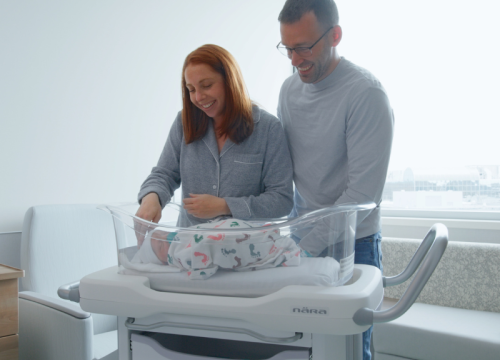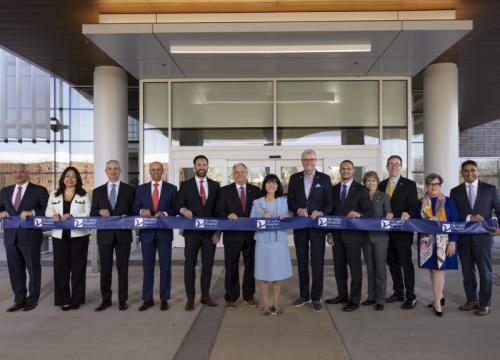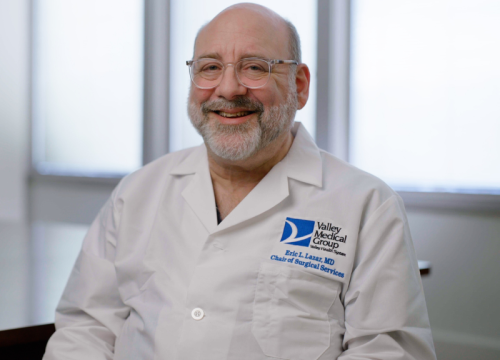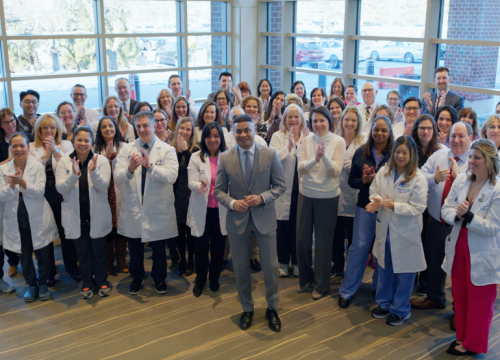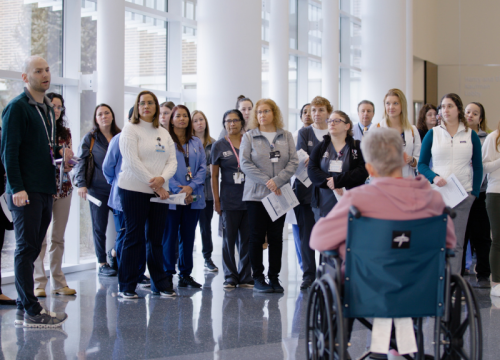At The Valley Hospital Fertility Center, we offer elective egg freezing as an option for healthy women who wish to postpone their fertility into the future. We also offer egg freezing as part of fertility preservation for women before they undergo cancer treatment.
Egg freezing (also known as egg harvesting) has led to hundreds of births throughout the world.
Egg Freezing Age Limit
- There is not a specific age limit for freezing your eggs. However, a baby girl is born with all the eggs she will ever have. Because a woman's eggs age along with her, they diminish in quality and quantity as she grows older.
- Harvesting eggs before age 35 offers a woman the ability to use younger, healthier eggs when she is ready to conceive a child.
- Because egg freezing is still relatively new, scientists are not yet sure how long eggs can be frozen and then successfully thawed and fertilized. Scientists expect they can be frozen for up to 10 years.
Benefits of Egg Freezing
- Gives you peace of mind. When you are ready to start or expand your family, you will have your own young healthy eggs available.
- Eliminates the pressure of your biological clock. It can take away the stress of feeling the need to rush into a relationship to have children.
- Gives you the chance to preserve fertility before it declines. Fertility begins to decline after age 30, and it drops sharply after age 38. After age 40, the chance for a woman to conceive with her own eggs is dramatically diminished.
- Offers an alternative to embryo freezing. There are a number of benefits of egg freezing vs. embryo freezing. With egg freezing, you:
- Do not need to be in a committed relationship with a partner who can provide sperm or need to seek a sperm donor
- Hold complete ownership of the frozen eggs; with frozen embryos, both parties who contribute to the embryos hold ownership
- Do not have to be concerned about disposing of unwanted frozen embryos
Egg Freezing Process at Valley
- Egg freezing begins the same way that in vitro fertilization (IVF) does: Your ovaries are stimulated with fertility medications so that multiple eggs mature during a single cycle.
- The number of eggs retrieved varies, depending on your age and how your body responds to the medications.
- The egg retrieval process is performed under general anesthesia, and you will go home the same day after a short recovery room stay. You will need an escort to take you home after the procedure because of the anesthesia.
- After egg harvesting, your eggs are evaluated in our embryology lab, frozen in a special solution, and then preserved in liquid nitrogen.
- All eggs retrieved and frozen at our laboratory are stored and maintained here on site.
- When you wish to become pregnant, your eggs are thawed and then fertilized using a technique called intracytoplasmic sperm injection (ICSI). ICSI introduces one single sperm directly into a single egg.
- After several days in the lab, the resulting embryo(s) are transferred into your uterus or are biopsied and refrozen for a preimplantation genetic testing (PGT) cycle.
Freezing Eggs Insurance Coverage
- Please check with your health insurance carrier before beginning any fertility procedures, including elective egg freezing.
- Many insurance companies do not cover egg freezing. However, resources may be available to you through advocacy groups or other sources.
Why Choose Valley for Egg Freezing?
- Exclusive vitrification: At Valley, we use vitrification (or, flash freezing) for egg freezing. Vitrification has been demonstrated to greatly increase the survival rate for the egg vs. slow freezing.
- High-tech monitoring of frozen eggs: We have advanced protections for our cryopreservation tanks. These include external visual inspections, an alarm system and 24/7 monitoring of temperature to ensure precise temperature control.
- Low-oxygen benchtop incubators: We use low-oxygen benchtop incubators (instead of a box incubator). When opened, benchtop incubators recover to the correct environment and temperature more quickly, resulting in more viable eggs and embryos.



